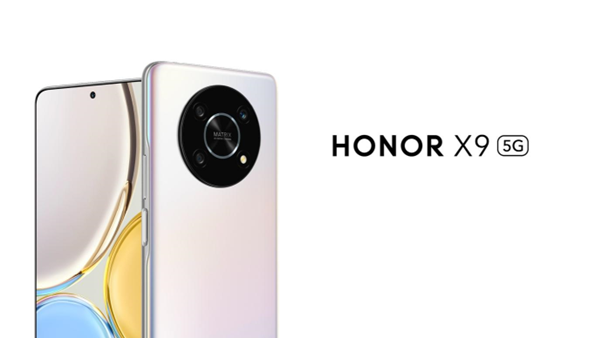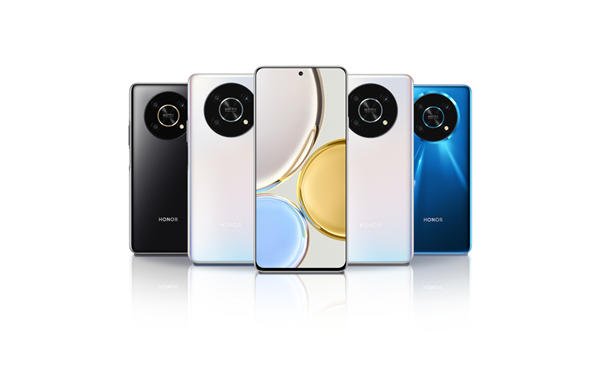
In the
dynamic world of smartphones, manufacturers are continually striving to enhance
user experience by introducing innovative and user-centric features. These
features go beyond technical specifications and focus on addressing the diverse
needs and preferences of smartphone users. This article explores the evolution
of user-centric features in modern phones, putting the power firmly in the
hands of the users.
Intuitive User
Interfaces: Navigating with Ease
User
interfaces have undergone significant transformations to provide more intuitive
and user-friendly experiences. Modern smartphones boast sleek and visually
appealing interfaces that prioritize ease of navigation. Gesture controls,
simplified menus, and customizable home screens contribute to a seamless and
intuitive interaction, allowing users to navigate effortlessly through their
devices.
Customization Options:
Tailoring the Experience
Recognizing
that one size does not fit all, smartphones now offer extensive customization
options. From changing wallpapers and themes to organizing app icons and
adjusting system settings, users can personalize their devices to reflect their
unique preferences. Customization features empower users to create a smartphone
experience that aligns with their individual tastes and enhances the sense of
ownership.
Dark Mode: Aesthetic
Appeal and Battery Conservation
Dark mode
has become a popular user-centric feature, offering both aesthetic appeal and
practical benefits. By inverting the color scheme to darker tones, dark mode
reduces eye strain in low-light conditions and conserves battery life,
particularly on devices with OLED displays. This feature caters to users who
prioritize a visually comfortable experience while also promoting energy
efficiency.
Digital Wellbeing
Tools: Balancing Screen Time
With the
rise of digital awareness, smartphones now integrate digital wellbeing tools to
help users manage and balance their screen time. Features like app usage
trackers, screen time limits, and focus modes empower users to be more mindful
of their device usage. These tools come with modern smartphones like HONOR X9 that aim to foster a healthier relationship with technology, promoting
well-being and reducing the potential negative impacts of excessive screen
time.
Smart Assistants:
Streamlining Daily Tasks
Smart
assistants, such as Siri, Google Assistant, and Alexa, have become integral
components of user-centric smartphone experiences. These virtual assistants
streamline daily tasks by responding to voice commands, setting reminders,
sending messages, and even controlling smart home devices. By integrating smart
assistants, smartphones aim to simplify users' lives and enhance productivity
through seamless voice interactions.
Advanced Camera Modes:
Elevating Photography Experiences
Modern
smartphones are equipped with advanced camera modes that cater to diverse
photography preferences. From professional-grade manual modes to innovative
features like Night Mode and Portrait Mode, users can capture high-quality
photos in various scenarios. These camera enhancements ensure that users can
express their creativity and capture memorable moments with the best possible
image quality.
Enhanced Security
Features: Prioritizing User Privacy
Security
features have evolved to prioritize user privacy and protection. In addition to
biometric authentication methods like fingerprint recognition and facial
scanning, smartphones now include advanced security measures such as app
permission controls, secure enclaves, and two-factor authentication. These
features empower users with robust tools to safeguard their personal
information and maintain control over their digital privacy.
Extended Battery Life:
Sustaining Connectivity
Recognizing
the importance of extended battery life, manufacturers are prioritizing power
efficiency in smartphones. Features like adaptive battery management, low-power
modes, and fast charging technologies ensure that users can stay connected for
longer periods without the constant worry of running out of battery. This
user-centric approach acknowledges the integral role smartphones play in daily
life and the need for reliable and long-lasting power.
Augmented Reality (AR)
Experiences: Blurring Realities
Smartphones
now incorporate augmented reality (AR) features that enhance user experiences
beyond traditional functionalities. AR applications and games leverage the
device's camera and sensors to overlay digital elements onto the real world.
Whether exploring educational AR apps or engaging in immersive AR gaming
experiences, users can enjoy interactive and entertaining content that blurs
the boundaries between the digital and physical realms.
Conclusion: Empowering
Users in the Smartphone Era
In
conclusion, user-centric features in modern phones signify a shift towards
empowering users in the smartphone era. From intuitive interfaces and
customization options to advanced camera modes and digital wellbeing tools,
these features prioritize user preferences, needs, and privacy. The evolution
of smartphones reflects a commitment to providing not just cutting-edge
technology, but a personalized and user-friendly experience.
